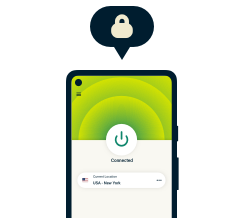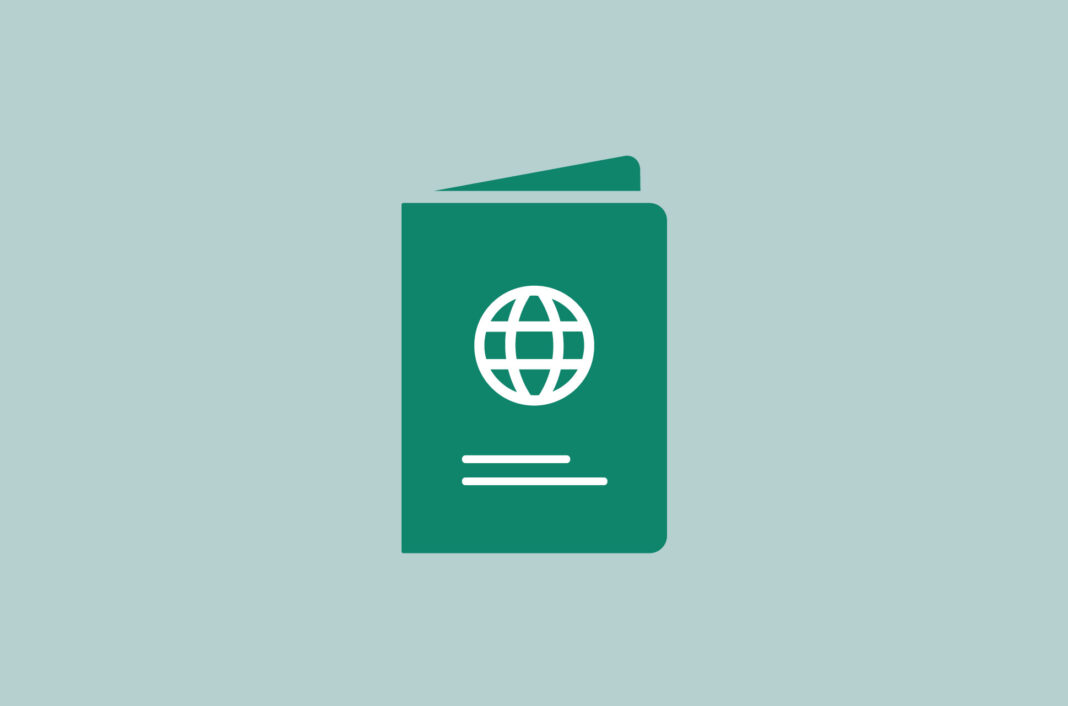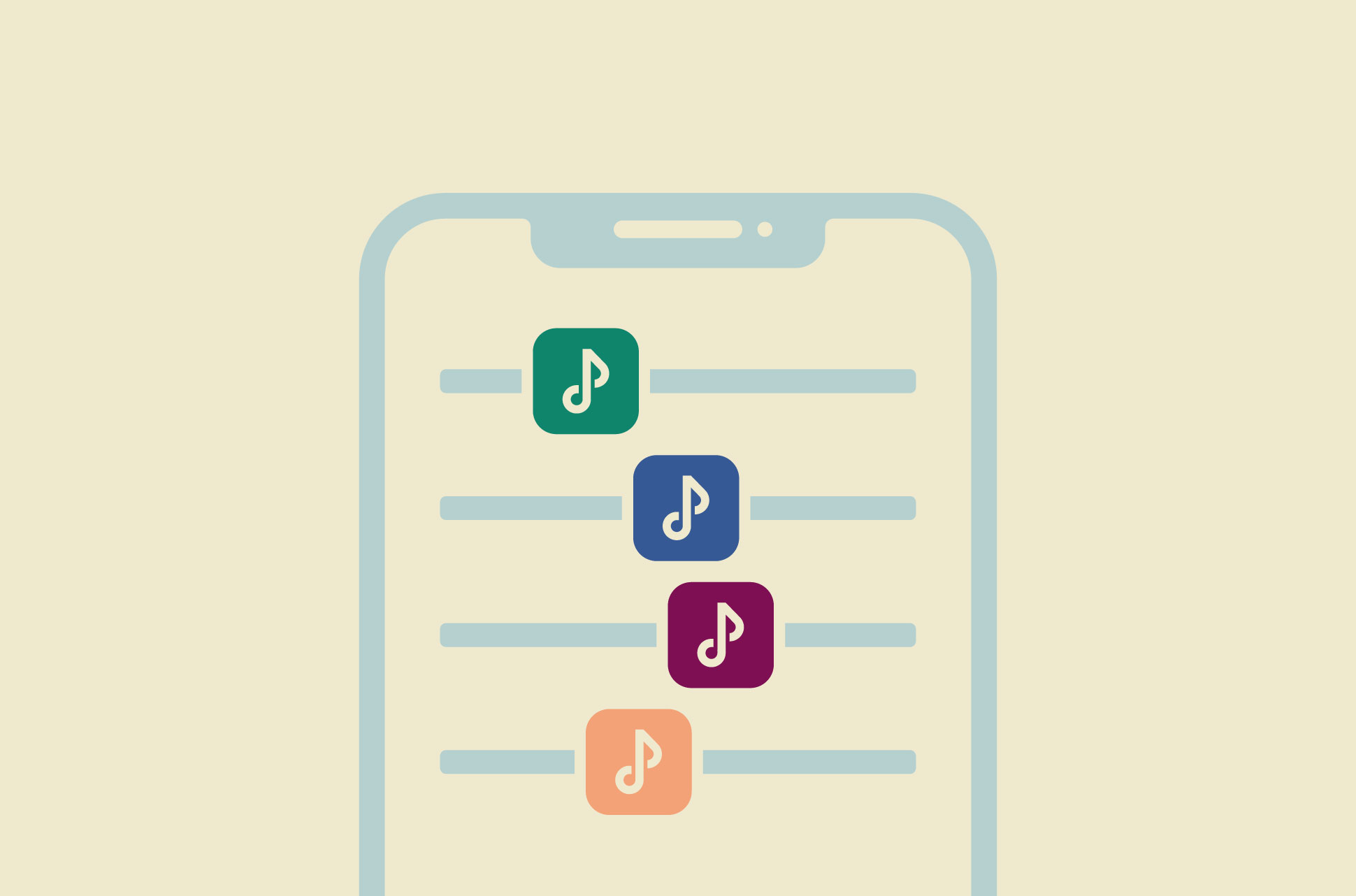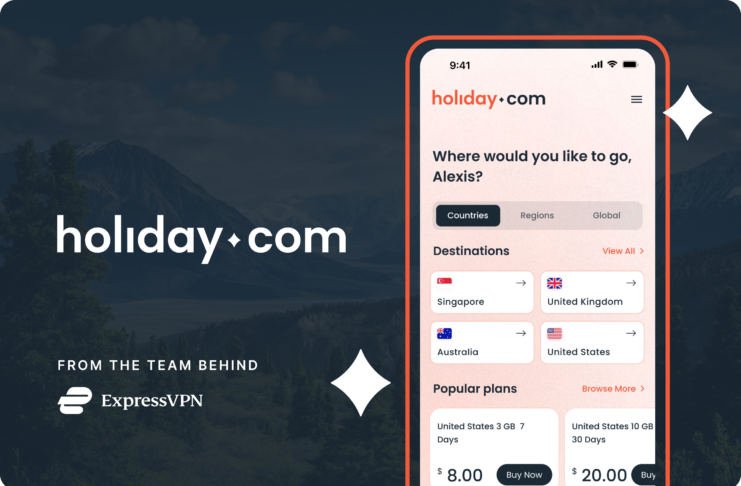What does it take to be a good digital citizen, and why should you care? As more and more aspects of our lives move to online spaces, it’s becoming increasingly important to understand how our behavior online affects others—and this concept is at the core of digital citizenship. Find out what exactly it means and how to make sure you’re doing your part to keep online spaces safe for everyone.
[Stay up to date with the latest in privacy and security. Sign up for the ExpressVPN blog newsletter.]
What is digital citizenship?
So what is the definition of digital citizenship? To be a citizen is to be a part of a community, and to be a digital citizen is to be part of the digital community. In many ways, being a good digital citizen is no different from being a good citizen in general—it requires you to be respectful, show empathy, help others, and contribute to the community.
But the digital community transcends geographical borders, national laws, and cultural norms. It can be challenging to understand your place within it because it’s such a diverse and evolving space (hello, Metaverse). Educating yourself about your role and responsibilities as a digital citizen helps make the internet a safer and more useful place for everyone.
Why is digital citizenship important?
On the most basic level, to be a good digital citizen is to engage positively with digital spaces. When you’re interacting online, it can be easy to forget that there’s a real person on the other side of the screen. A snarky comment or tweet, reposting an image without crediting its creator, downloading a song or movie without paying for it—these actions might feel harmless because of the intangible and impersonal nature of being online. But they’re not without consequence and can result in damage to mental health, loss of income, and even physical harm.
Trolling and cyberbullying pose a threat to anyone with a social media account. Children are often both the victims and perpetrators of cyberbullying due to their limited capacity to understand the impact of their actions. But adults are also involved in cyberbullying. And while high-profile people are frequent targets (some people seem to find joy in harassing celebrities online, especially women), incidents like Gamergate have shown that anyone can be a victim—from multinational companies to ordinary individuals.
Doxxing, in which harassers reveal someone’s personal information (like their home address and phone number) online, is an especially damaging form of cyberbullying. It’s not an uncommon experience among Gen Z: Over 29% of respondents to ExpressVPN’s 2021 Gen Z social media survey had been doxxed because of content they’d shared on social media. Swatting is another type of harassment that involves making a hoax call to report a bomb threat or hostage situation at the target’s home address. It sometimes results in police or a SWAT team being deployed—hence the name—and can create a high risk of physical harm. Harassment via doxxing or swatting is illegal and can put people in serious danger.
Read more: How to defend against doxxing
Why should kids learn about digital citizenship?
Most parents are familiar with the difficulties of managing screen time. It’s a never-ending battle to get kids to put away devices at the best of times, and it became even more challenging as the pandemic kept so many of us at home and indoors.
With online learning increasingly common and devices becoming cheaper and more accessible, children and teenagers are spending more time online than ever before. It’s difficult for parents to closely monitor what kids are doing online, and kids might not be able to fully understand the consequences of their actions.
Whether they understand it or not, children are digital citizens, too, so it’s vital they learn how the online ecosystem works. Increasing their digital literacy makes them less vulnerable to threats like trolling and phishing. It also makes them more empathetic—and less likely to be the threat—as they start using social media and gaming online.
Read more: How to use built-in parental controls on devices
5 ways to be a good digital citizen
1. Gain digital literacy
Learning to be digitally literate is important for everyone, but kids or older adults may need extra guidance. Digital literacy includes things like learning to spot phishing emails and scams; understanding how to use privacy settings on social media accounts; knowing the importance of password safety (how to create strong ones, where to store them, and why you shouldn’t share them); and thinking critically about what you read online.
2. Be civil in online interactions
Comment threads and anonymous forums can expose people’s nastier impulses. There are plenty of opinions on the internet and plenty of people who disagree with them. But a simple disagreement can quickly turn into personal attacks and even threats. According to our Gen Z survey, 41% of respondents who had set their social media accounts to private said one of the reasons they did so was to avoid harassment from strangers.
It’s become common wisdom: If you wouldn’t say it to their face, don’t say it online (and sometimes you still shouldn’t say it!). If someone posts nasty comments on your content, don’t engage. You might choose to block and delete.
3. Respect people’s rights and property
Just because something is accessible to you doesn’t mean you have the right to take it, use it, or alter it. That could mean downloading a movie illegally (actual theft), logging into a friend’s account without permission (identity theft), or repurposing or reposting an image, content, or artwork without permission (copyright infringement). The issues with these actions are both legal and moral.
4. Consider the consequences of what you post
It might feel transient, but what you put online stays online. For example, when you post a photo on social media, it’s available to be publicly shared and distributed, even if you intended to share it privately. When you tweet, comment in a public forum, or even send a text message, you lose control of that content.
Always consider how what you post might affect others. If comments are offensive in real life, they’re offensive online, too. People have lost jobs because of offensive tweets, regardless of how long ago they were written.
It’s also a good idea to get friends’ permission before posting pictures of them or anything about them. And remember: Snapchat and Instagram Stories may be short-lived, but screenshots last forever.
5. Find a healthy balance
It’s easy for kids and adults alike to get caught up in life online. But it’s important to protect your mental health by maintaining a balance between your digital life and real life. Increased time spent online and on social media is literally changing our brains. Make sure you set limits for yourself or your kids, and step away from the screen for a dose of reality—not only will it give your eyes a rest, but it will also refresh your perspective.
Read more: 7 ways to reduce or limit your screen time
Digital citizenship is a privilege
As you navigate online spaces, remember that being a digital citizen is a privilege. Around one-third of the global population does not have access to the internet—and many people who do have access are subject to strict government censorship.
As digital citizens, it’s our responsibility to advocate for digital rights and internet access for all. One of the greatest benefits of the online community is that it can amplify our voices and empower us to enact positive change. When we take digital citizenship seriously and use the immense power of the internet for good, incredible things can happen.

Take the first step to protect yourself online
30-day money-back guarantee


























Comments
“Good Digital Citizen”? What a load of PC Rubbish
Do us all a favor..
You provide a service.. we pay for it..
Keep your Sociopolitical ideas and beliefs to yourselves..
If you cannot you give every reason to suspect you feel compelled to compromise the very privacy you market and we have good reason to look elsewhere for service.
I do not trust any service is actually private…MIM attacks or a simple letter requring one keep logs and not inform customers or both likely as not..
I use a VPN to somewhat increase the difficulty for my Local ISP to note that I watch old 40s B&W movies, buy junk from Ebay and or Wallyworld.. I trust it for little more…
Your little PC sermon only confirms suspicionsm
Sweet !!!
I believe that Thom Hartmann (radio show host) recommended this service. Installed easily on my main windows PC, but installation is not going easily on my Galaxy S9.
Or maybe parents shouldn’t be stupid and give their kids phones exposing them to all this. Maybe learn to grow a thicker skin. I grew up on the worst of the worst internet,and you know what? I learned to live with it and got stronger because of it. It’s insane how you people screech about freedom and democracy, yet when someone says something about your candidate, or says something mean, you turn into a hall monitor and become fascist authoritarians. You have no idea what it is like to live in an oppressed country where the government monitors everything you do.
Learn to value your freedoms and cherish it before it’s gone or its too late.
I always tend to read these posts when I switch locations on the VPN. I always enjoy them, always!
This is the first post, in over a year (2?); that I’ve felt compelled to respond to. My response is that you raise 5 great points. Credit given where credit is due! I would only like to ask:
Does expressvpn still believe in the core principle of No-log, RAM BASED, premium VPN Privacy?
Thanks for reading!
Absolutely, we are foremost a privacy company. We don’t collect activity logs or connection logs, and our VPN servers run on RAM.
Hard to install, but I did it. Thanks.
Es wird eine 30tägige kostenfreie Testphase für ExpressVPN angeboten.
Nach der Anmeldung heißt es dann plötzlich “ein Angebot auswählen und bezahlen mit 30 Tage Geldzurück-Garanti”.
Das hat einen sehr unseriösen Touch. Entweder kostenfrei oder nicht.
Kostenfrei heißt ohne Bezahlung, nicht mir Bezahlung und dass Geldzurück.
For our 30-day money-back guarantee, we do not describe this as a free trial, although we think it’s better than a free trial offered by other companies.
Please do let us know where you see our 30-day money-back guarantee described as a “free trial” so we can correct it.